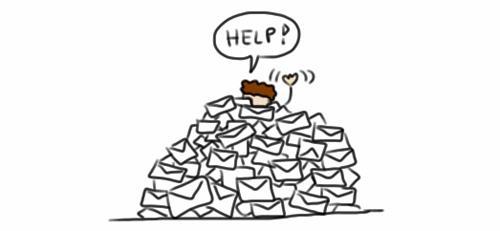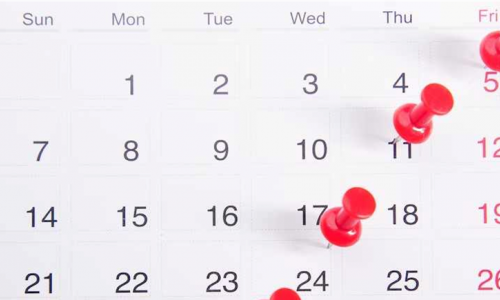
You've got mail. Actually, you have a lot of mail. And it's making your head spin.
I know that feeling of dread when you open your computer in the morning to find what feels like 106 unread messages. The seemingly endless tasks never stop pouring in; like cement on the sidewalk, it gets more difficult to move through the longer you wait. It's enough to make you want to close your computer and call it a day… for some! Others have reached the epitome of inbox organization. I’m here to show you how.
The over stimulating nature of a cluttered inbox can increase stress levels, damper productivity and diminish work performance. One reason for this is because you’re less likely to know what’s in a messy inbox compared to a clean one. It becomes a lot easier to forget about tasks when you don’t know they exist in the first place. Given the fact that unread emails could sit in your inbox for days before being noticed, it’s no wonder productivity would be affected. On the same note, a disorganized inbox may lead you to believe you’re busier than you actually are. Although those 106 emails may seem like a lot, how much of it is junk? How many are only small tasks that you could finish in 5-minutes or less?
Taking back your inbox is less work than it seems. In fact, there are only four steps you need to take in order to achieve the so-called “epitome of inbox organization”:
1. Read ‘em and Delete ‘em
If your inbox is full of the “unknown”, it’s time to figure it out. As a best practice, keep all emails that have actionable tasks or important information. Delete all useless notifications, newsletters and updates.
2. Organize!
Channel your inner neat freak and make some darn folders. Sort your existing emails into buckets that make sense for the work you do. As a cautionary word, be critical in your filing escapade as there’s a dangerous tendency to think “out of sight, out of mind”. I treat my emails like items on a to-do list and only file them away when you’re completed.
3. Prioritize
Even though it may seem “over the top”, try colour coding, tagging and flagging your emails to indicate levels of priority. This is a great way to help you regain your work productivity because if your inbox is flooded with high priority emails, you know it’s time to step up your game.
4. Make it a Routine
Good email organization is an everyday practice, not a monthly ritual. You’ll always have more emails to sort through. As a best practice, I start every work day by sorting emails until only prioritized, actionable emails are left. Attend to emails quickly as they flow in throughout the day to stay on top of your work load to ensure your inbox doesn’t fall into chaos.
Email is unquestionably a very overwhelming form of communication, but don’t let it get the best of you! By following these tips, you’ll not only harness the power of having a clean inbox, but also manage your day-to-day work life more efficient.
















